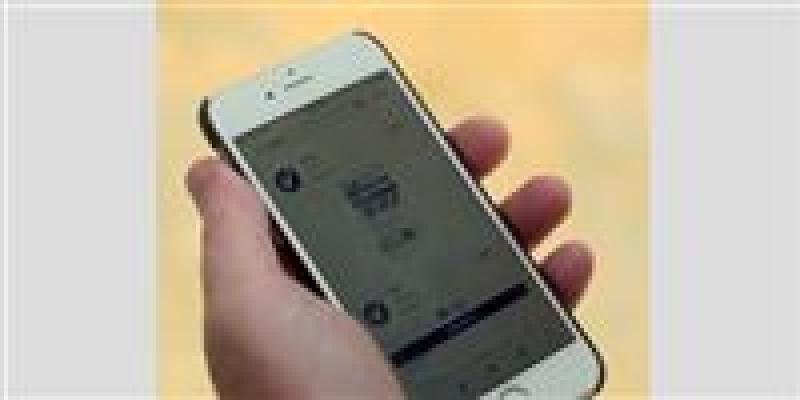West Virginia plans to make smartphone voting available to disabled people for 2020 election



West Virginia is moving to become the first state to allow people with disabilities to use technology that would allow them to vote with their smartphones in the 2020 election.
Gov. Jim Justice, a Republican, plans to sign a bill by early next week that will require all counties to provide some form of online ballot-marking device to every voter with physical disabilities , according to West Virginia Secretary of State Mac Warner.
Warner, the state’s chief election official, said that he would most likely provide counties with the smartphone app Voatz or a similar app, making the choice easy for cash-strapped counties.
But cybersecurity experts have long railed against apps like Voatz , saying that any kind of online voting unnecessarily increases security risks.
“Mobile voting systems completely run counter to the overwhelming consensus of every expert in the field,” said Matt Blaze, a computer scientist at Georgetown University and a seasoned election security researcher. “This is incredibly unwise.”
Researchers have not identified any specific security problems with Voatz, but broader concerns about the app and election security in general have spurred greater scrutiny of it. In November, Sen. Ron Wyden, D-Ore., sent a letter to Defense Secretary Mark Esper asking for a review of Voatz.
Despite expert opposition, a growing number of counties across the U.S. are adopting Voatz or other forms of smartphone voting. In 2018, West Virginia was the first state — and remains the only one — that offered all counties the option to use Voatz for military and overseas voters.
Warner said he hadn’t fully committed to Voatz being the app he’d give to counties, and was waiting for Voatz to complete a security audit.
“The fact that it’s worked for us before and it’s secure means it’s likely we’ll go that direction,” he said.
The Department of Homeland Security, the federal agency that offers election security assistance and advice to state and county election officials, declined to comment. But its top cybersecurity official, Chris Krebs, has repeatedly cited the National Academy of Sciences report on election security , which says online voting currently is untenable as a secure technology, as an authoritative guide.
But allowing voters with disabilities access to online voting is a matter of “risk benefit analysis,” Warner said. A 2017 Government Accountability Office study found that polling places are rife with difficulties for people with disabilities. West Virginia has the highest rate of people with disabilities in the country, according to a 2015 Pew study.
Tags
Who is online
89 visitors

When Trump gets a million votes from disabled people from a state with less than 2 million people they'll realize there's a problem with this.
I thought your biggest concern was the Russians. To hear the Democrats tell it, they rigged the election for Trump.
I'm concerned with anybody and anything that can delegitimize our elections. You should be too Greg.
I think given these very limited circumstances it won't be a problem since they would need to be legally registered to vote and also legally disabled plus they'll have to register for the online vote beforehand most likely by mail. That's a lot of hoops to jump through and everything must be verified so it makes fraud unlikely. The numbers will be small enough to increase scrutiny, I wouldn't recommend this for the general population though oversight would be impossible with to many people.
I would guess that by 2035, our elections will be done in a much different way. Possibly by cell phone. Fingerprint technology has advanced by leaps and bounds over the last decade. My bank will not allow me to use their online app if I don't have a "fingerprint lock" on my phone.
Of course there a ton of logistical issues with voting with phone. Security is a big one. Then you'll have the people who don't own a cell phone, or, don't want to vote that way. Lot's of "what about..." issues with voting with a cell phone. One thing is for sure, when/if we get to a point where voting via cell phone is viable, there will be no more gerrymandering, no more voter suppression and no more having one or two voting booths serving a few hundred thousand people.
Historically, Democrats do better when voter turnout is higher. Voting by phone would help to ensure that everyone that wants to vote, can vote.
There are also many areas in WV with lousy cell service, and poor internet service, too. Of course, these are the more rural areas, where transportation to polls is likely to be an issue.
I'm not sold on the idea of voting by cell phone. Too many security risks, too little reliable service.
I'd rather see groups offering transportation to the polls, perhaps even taxpayer-supported handicapped-accessible vans.
WV has fairly broad qualification requirements for absentee voting, and considers injury, illness, or advanced age, and even work hours and distance to county seats as legitimate reasons for absentee voting. I think simply publicizing absentee voting might increase turnout, without the same security risks as voting by phone.
IMO this is a bad idea. The hacking possibilities are just too risky. Surely there is a better way to insure that people unable to vote due to physical limitations are able to.